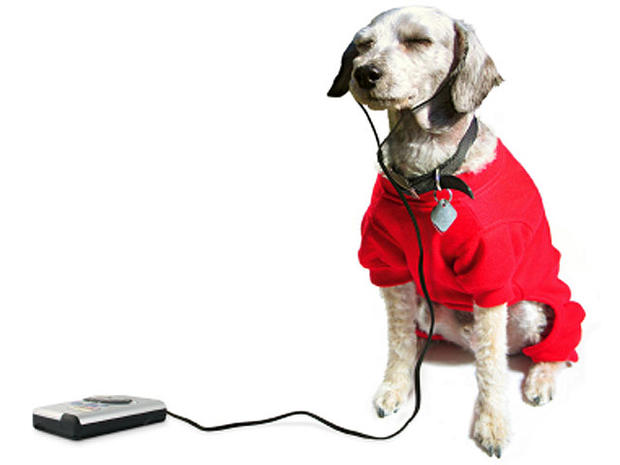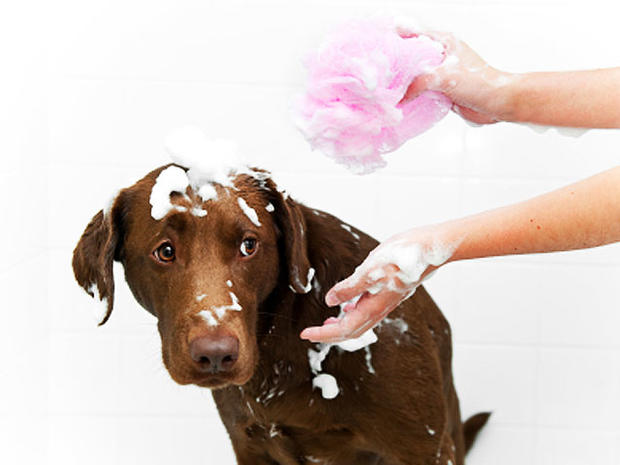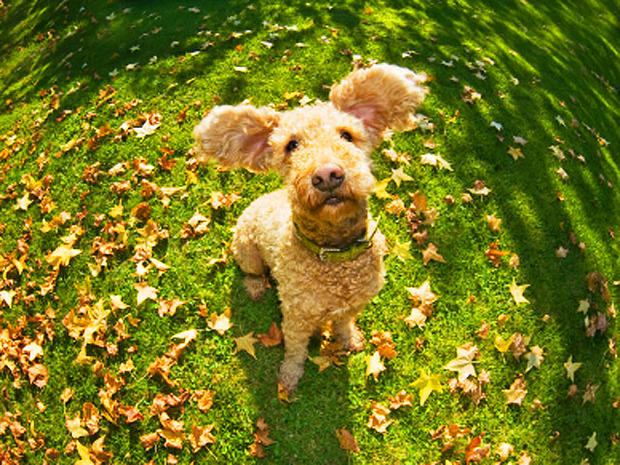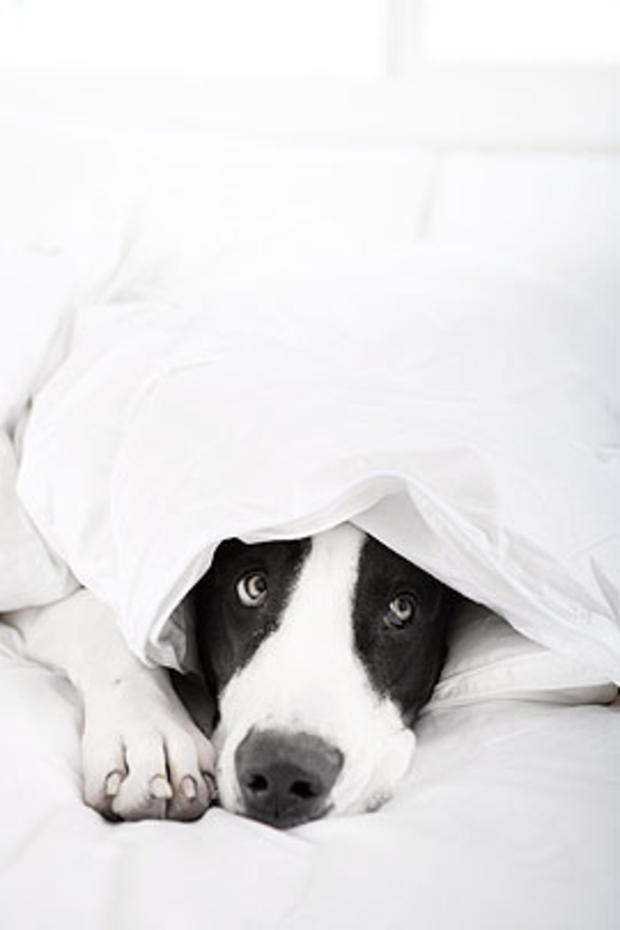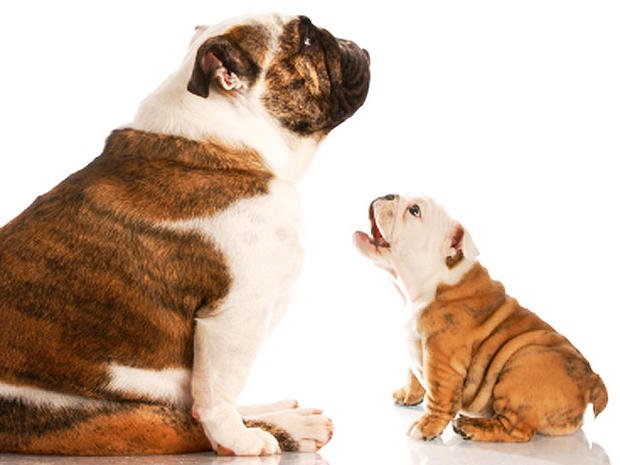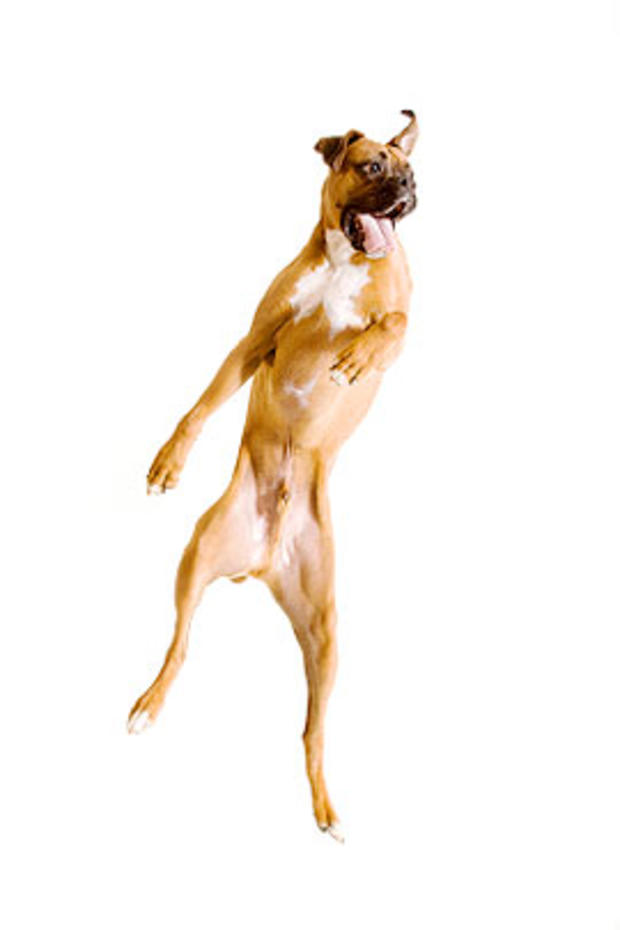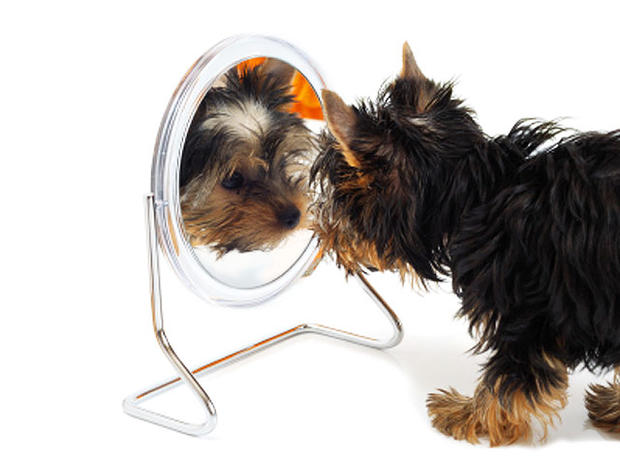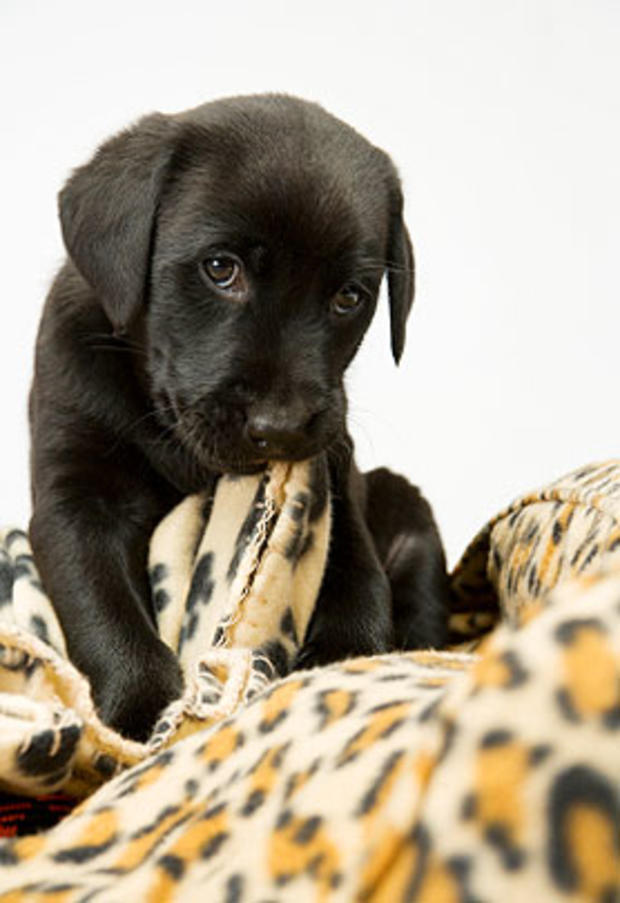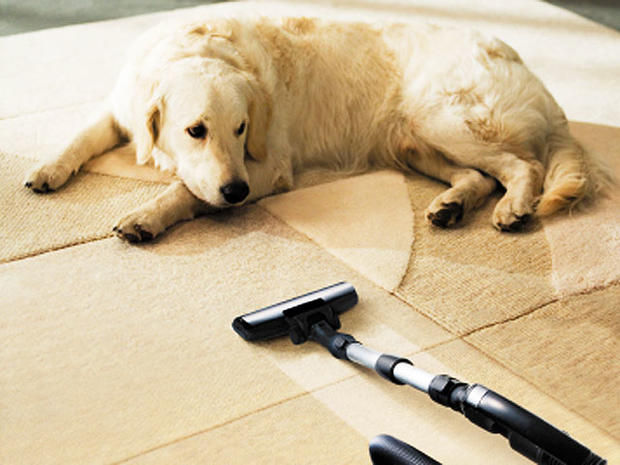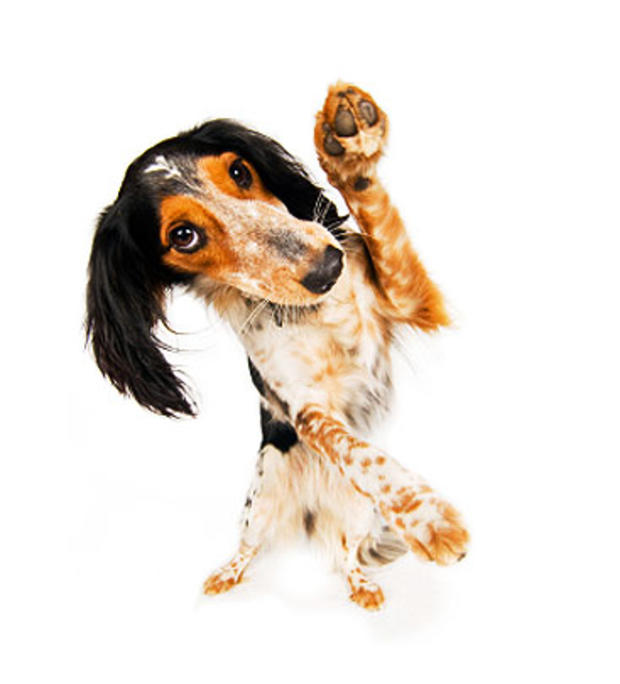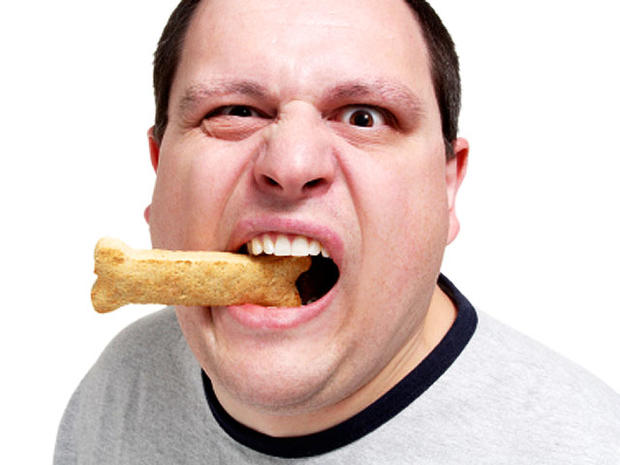Is Your Dog Crazy? 15 Nutty Behaviors Explained
Puppies that don't have enough positive experiences with people, other animals, and environments learn to fear the unfamiliar.
How can you rein in bothersome behavior? For most problems, reward based techniques that help dogs unlearn their deep-seated fears are effective. But occasionally medication is in order.
Sleep Runner
In normal animals, brain activity during sleep is similar to that of an awake, alert state. The only difference is that large muscle movement, in the legs, for example, is inhibited.
In what's called R.E.M sleep disorder, the brain signals reach the large muscles so that the animal acts out its dreams.
There are medications that may help control the condition, says Dr. Yin.
Fear of Thunder
Symptoms of a phobia include pacing, shivering, and drooling, says Dr. Yin. Some dogs panic and try to escape, and there have been cases of dogs injuring themselves by slamming into doors or glass panes.
If your pup starts acting like he's seen a poltergeist whenever there's a storm, intervention may be in order. Try playing a CD of a thunderstorm at a low volume while playing with him and giving him treats, says Dr. Yin. Raise the volume on CD slowly, and only when he is comfortable - or the therapy may backfire.
The idea is to get him to associate thunder with good times.
Poop Snack
There is the rare dog that never develops a taste for poop, just as some humans never appreciate the taste of caviar. So if your dog turns up his nose at the kitty litter box, consider yourself lucky.
Don't Touch Me
Start by pairing grooming with treats. Restraints might work, but they don't address the underlying fear.
Around and Around
There is a danger in letting such behavior go unchecked, says Dr. Yin. It can worsen - sometimes after a traumatic event - and the dog may get to the point where he's unable to stop.
Some dogs spin compulsively at the expense of eating, and may even have to be euthanized.
Crash Bang Pop
Instead, says Dr. Yin, pick up a sound effects CD and play the sound of fireworks at low volume. Play with him and give him treats as you do. Gradually increase the volume so that he associates the loud noise with fun.
This will work for some dogs, while others will need antianxiety medication.
Separation Anxiety
Just like humans, dogs need to learn emotional self-control. When Dr. Yin works with clients, she teaches the dog that he must lie down quietly to get the owner to return.
Owners must be educated as well. Making a fuss over your comings and goings reinforces a dog's anxious behavior. Stay calm, and reward your dog is he does too.
Dog Hater
A dog raised in an exclusively human environment may come to see other dogs as aliens.
Shadow Chaser
If you can easily distract him from the game, that may be okay. But if he is prone to compulsive behavior and the shadow chasing is not nipped in the bud, it could morph into something the dog is incapable of controlling, says Dr. Yin.
Mirror, Mirror
That's normal. Think about it - a moving, odorless dog that appears in the house is probably as scary as seeing a ghost, says Dr. Yin. Most dogs eventually learn to ignore the specter.
Senior Citizen
He may have canine cognitive dysfunction, which is similar to senility in humans, says Dr. Yin. Special antioxidant-fortified dog foods or antioxidant capsules can slow the process. If all else fails, your vet may be able to prescribe a helpful medication.
Night Sucking
Owners are often unconcerned, but this behavior should not be encouraged. Dogs who suck blankets can swallow pieces of blanket so large they have to be surgically removed.
Is It Alive?
Leader of the Dance
"If you can move in ways that make your signals clear, your dog will understand what you want or expect of him, " she says. "Overall, you will become more predictable and trustworthy in his eyes."
That makes for a better-adjusted dog.
Train Yourself
If the owner has had a dog for a long time, he/she has likely developed habits that contribute to the dog's undesired behavior. The dog may learn a new way to behave, but if the owner is inconsistent, the dog might not make progress.
Sometimes, says Dr. Yin, it's harder to break the owner of his/her bad habits than it is to change the dog's behavior.


